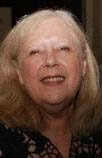If a student writes a story of death and destruction, is it reasonable to assume he or she is capable of the type of violence Cho Seung-Hui committed at Virginia Tech?
I don’t think so. I’ve worked with hundreds of students in different writing situations. Teens are particularly moved to write stories filled with victims losing limbs and over-done descriptions of mayhem and murder. Perhaps because the teen years are filled with challenges of learning to control emotions and learning to handle a less than perfect world, it’s natural that these young writers will over-do almost any scenario. They do the same thing if they write about love. Emotion pours forth like milk spilling from an overturned carton.
The writing alone doesn’t suggest a problem. But such stories coming from a student who’s troubled, one who’s stalked other students or set a fire, are a different matter.
My daughter Jennifer Day is a Mental Health Case Coordinator working on her master’s degree in criminal justice. “For some people,” she says, "writing is a form of therapy. Some kids may express anger, but if they’re not demonstrating social issues and they have no other problems, a violent fictional story isn’t enough to indicate violent social problems. Writing exercises are used in therapy, for instance, if a child isn’t benefiting from conversational therapy.”
Cho was a different matter. For one thing, his writing wasn’t that of an angst-filled teen. Cho was 23. Cho's play, "Richard McBeef," is posted at the Web site The Smoking Gun (thesmokinggun.com). As I read through the play, I realized Cho harbored a great deal of anger towards male figures. The mother figure is a sympathetic character for the teen boy in the play. The stepfather, however, is a target for ridicule, hostility and hatred—he is figuratively emasculated. The play ends with the stepfather killing the teen boy.
The Virginia Tech massacre might have been prevented, or lessened, had various people followed up on warning signs. News reports indicate Cho’s professors did everything in their power to get help for him. After stalking two female students in 2005, Cho was evaluated at a psychiatric facility. Judge Paul Barnett ruled that Cho "presents an imminent danger to himself as a result of mental illness.”
So what did the judge do? He recommended outpatient treatment.
The BBC and other media reported Cho once started a fire in his dormitory. Isn’t this arson? Should charges have been filed? Would such charges on Cho’s record have prohibited him from buying a gun?
I believe it is also unreasonable to assume Cho’s family members were unaware the young man was troubled.
The perplexing question is what might have actually been done? Would hospitalizing him have helped?
A close friend of mine, a man I was close to for over 20 years, suffered from bi-polar disorder. When he’d get off his medications, he could be completely delusional. One day he came to my house and begged me to type a letter for him. The recipient: Prince Charles. My friend purported to have valuable information for the British prince, information that could be a matter of life and death. I had a very hard time with him on occasions like this. I ended up typing the letter and assuring him I’d mail it for him. Of course, I didn’t.
My friend committed suicide several years later. I still think it was by the grace of God he never harmed another person. What those of us who loved him might have done to stop him is a question we still can't answer.
And I think it’s the same for a murderer like Cho. Amidst all those warning signs, what can family or society do to intervene? Would forced extended hospitalization have helped? Should charges have been filed when Cho stalked the students and when he reportedly set a fire in his room? Would any of these actions have stopped the violence Cho inflicted on others?
Students who simply write fantastic stories are not necessarily future murderers. It all has to do with the context of the student’s life in a wholistic sense.
The whole picture of Cho’s life shows many warning flags were raised. The best we can do is learn as much as possible from those who suffer as he surely did, in hopes we may avert untold suffering for innocent victims.
Subscribe to:
Post Comments (Atom)



1 comment:
Many institutions limit access to their online information. Making this information available will be an asset to all.
Post a Comment